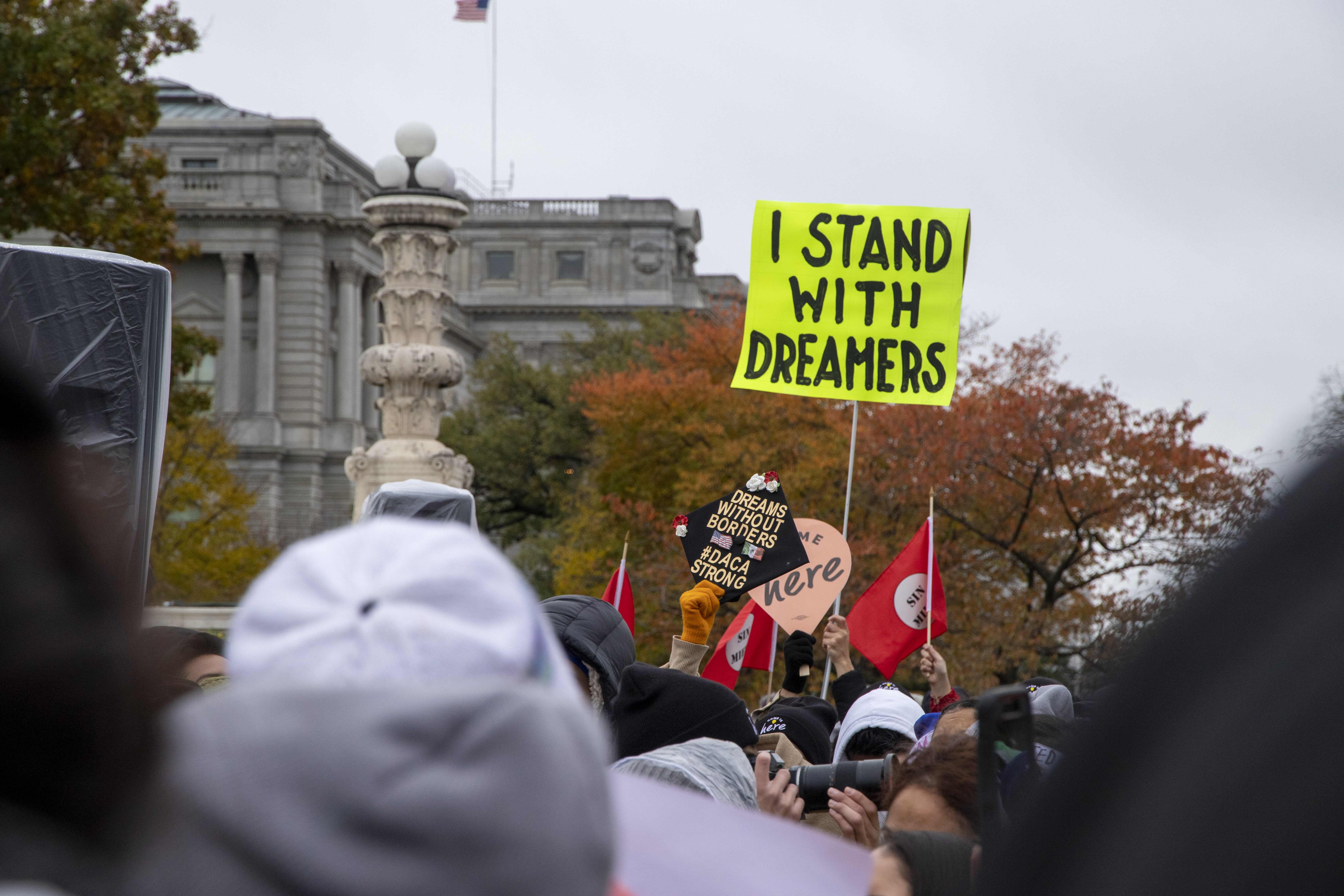Written by: Marko Sanchez, Cisneros Scholar ‘27
Sitting at the kitchen table, my mom quizzed me with flashcards to help me study for my test on the Constitution. As I finished the questions on the amendments, she handed me the cards to quiz her. The next week, I took my sixth grade test, and my mom took her citizenship test.
As a first-generation Mexican-American, I understood the importance of fighting for the well-being of immigrants from a young age — not only because it was my lived experience, but because I’m an American who holds the values inscribed in our Lady of Liberty to be true. This conviction made staying in Washington, D.C., for the summer an opportunity to work with an institution that reflected my values.
The Im/migrant Well-Being Scholar Collaborative isn’t a think tank or policy institution; it provides research to policymakers so they can steer the levers of power in a direction that is compassionate toward immigrants. In a world of spin doctors and rhetoric-wielding demagogues working to shape and control the narrative, I gravitate toward empirical research and scholarship — which is why I found comfort in the Collaborative’s mission of seeking the truth.
One of the truths revealed in a report by the Collaborative is that 343,000 DACA recipients served in essential jobs during the COVID-19 pandemic. These health care, education and food services professionals risked their lives every day for their fellow Americans while facing an uncertain future in this country due to the lack of a permanent legislative solution. While it was a hard truth to swallow, it was one that needed to be amplified through my research-to-public writing.
Similarly, as a creative who revels in creating eye-catching media, I see the importance of presenting these truths in a compelling and engaging manner to reach a wider audience. The ability to tell a story in greater detail through a photo — such as with posters that illustrate the cruelty happening at the border — instead of using written descriptions is a difficult task, but one I do not shy away from. In the age of social media, the Collaborative has taught me how to encourage audiences who are accustomed to fast-paced media to stop and read; the thumbnails I create direct people to essential research that needs widespread attention.
In addition, through the weekly blog I produce for the Collaborative that recaps headlines relating to immigration news, I have learned to be hopeful in difficult times. Curating doesn’t fully capture the extent of my work; my searches are inundated with stories of politicians and talking heads calling immigrants “illegals,” “aliens” and “animals” among other thinly veiled epithets. The thought of someone calling my mom these things fuels my empathetic defense of migrants with personal persistence. While the news is a bleak reminder of our political state, the slivers of humanity and dignity that shine through sit in my “heart-warmers of the week” column displayed proudly next to my headshot and sign-off at the end of my articles.
I’m eager to share my work with anyone who asks, especially my mom. Every day I happily call her to recount my day’s work knowing that the Collaborative is putting in the effort that will be seen kindly in a future that accepts the tired, the poor and the huddled masses yearning to breathe free.
Marko Sanchez is a Cisneros Scholar majoring in Political Science. This summer, they are a Comunicadores intern at the Im/migrant Well-Being Scholar Collaborative. Marko's views are their own and not necessarily reflective of the Cisneros Institute.
This article was originally published by Vanguard Communications.


